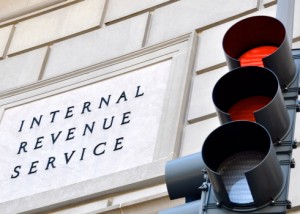There are ways to avoid possibility of IRS audit
 The English language has its share of beautiful words, ones that are a pleasure to hear and practically poetry all by themselves.
The English language has its share of beautiful words, ones that are a pleasure to hear and practically poetry all by themselves.
“Audit” is not one of them, according to the investment advice website Motley Fool. It is, in fact, one of the more frightening words around, a recent posting noted.
“Audit is one of the scariest words in the English language for many American taxpayers,” the article begins (http://www.fool.com/investing/general/2016/01/14/7-tax-tips-to-avoid-an-irs-audit.aspx). “While it’s true that a tax audit can be a serious inconvenience, the fact of the matter is that the overall chance of being audited is slim. About 1 percent of all tax returns are selected for a closer look. The even better news is that you may be able to further reduce your risk for an audit with these seven suggestions.”
These recommendations included:
1. Report all of your income. First and foremost, failing to report income from a W-2 or 1099 is an easy way to get audited.
2. Over-document your tax breaks. If you have any tax deductions or credits that could be considered unusual, be sure to thoroughly document every penny you claim.
3. Be careful when claiming business use of a vehicle. If you are self-employed or own a business, you are allowed to take a deduction for the business use of your vehicle. While there is nothing wrong with this, claiming that you use your vehicle for business 100 percent of the time is sure to raise some eyebrows.
4. Try to avoid filing an amended return. If you forget to claim a deduction or credit, or need to make any other corrections after you file your return; you have the option of filing an amended tax return. Try to avoid this situation if possible.
5. Check your numbers, and then check them again. Mathematical or typographical errors are a major red flag.
6. File electronically. Granted, it is 2016 and most taxpayers now file their returns electronically. However, there are still a significant number of people who use paper forms, particularly older taxpayers and those with simple (1040EZ) returns. The problem with using paper forms is that it’s much easier to make an error that will catch the eye of the IRS.
7. Be honest. This should be obvious, but the best way to avoid an audit is to be 100 percent honest when filling out your tax return.
“If you’ve done your homework, you don’t need to fear an audit.”
